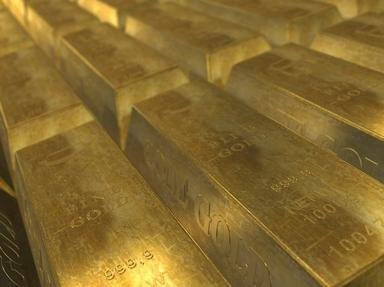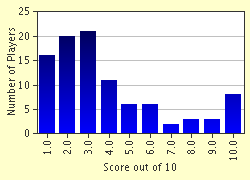Quiz Answer Key and Fun Facts
1. The Golden Boy stands on tiptoe on the dome of the Legislative Building in my hometown. Do you know where I am?
2. In 1939, another Golden Boy made the news. 'Golden Boy' was the screen version of a play and it starred William Holden and Barbara Stanwyck. Who was the playwright?
3. The Golden Gate is the strait at the entrance to San Francisco Bay. Who gave it that name?
4. When Queen Elizabeth II celebrated her 'Golden Jubilee' in 2002, she became the ______ English or British monarch to rule for 50 years or more.
5. Which saint was dubbed 'golden-mouthed" for his eloquence?
6. Where in the Bible would you find the story of the Golden Calf?
7. Who or what was the Golden Horde?
8. Who or what was Golden Ball?
9. When someone says "the golden bowl is broken", he or she is alluding to death. What is the source of the saying?
10. Which German city was known as the Golden Town in the Middle Ages?
Source: Author
Cymruambyth
This quiz was reviewed by FunTrivia editor
LeoDaVinci before going online.
Any errors found in FunTrivia content are routinely corrected through our feedback system.


